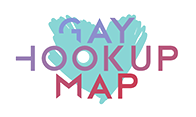Gay, lesbian, and bisexual people use the internet for many reasons. They can browse websites for information on sexual orientation and gender identity or to connect with friends.
PinkNews is a fave LGBT site from across the pond, offering news and entertainment with a sprinkling of politics. For a more in-depth look, the Advocate provides great coverage of LGBT news.
GLAAD
GLAAD is the world’s leading media advocacy organization focused on advancing LGBTQ acceptance. Their work impacts culture by rewriting the script for LGBTQ stories. They provide community engagement and media accountability that ensure authentic LGBTQ voices are seen, heard and actualized.
They fight against defamatory depictions of LGBTQ individuals in newspapers, magazines, motion pictures and television. They also educate media outlets with guides to appropriate language and terminology.
They encourage corporate leaders to be true allies by donating their time, money and resources to LGBTQ organizations. They also develop criteria for vetting elected officials and avoiding political donations to those that introduce, support or block pro-LGBTQ legislation.
GLMA
GLMA is an organization of health professionals dedicated to ensuring equality in healthcare for lesbian, gay, bisexual and transgender people and their health care providers. Founded in 1981, GLMA uses its members’ expertise in professional education, public policy work, patient education and referrals, and research.
Moreover, GLMA provides a platform for members to voice their opinions and concerns on issues related to LGBT health. It also encourages members to contribute to its advocacy efforts in the political sphere.
You can support GLMA’s mission by making it the beneficiary of your retirement plan(s), such as a 401(k) or IRA. To do this, simply complete a beneficiary designation form with your plan administrator.
GLSEN
GLSEN equips educators with resources for teaching about sexual orientation and gender identity in the classroom. Educators can learn about the latest research and policies, access resources for GSA clubs and other school-based support groups, and find information about upcoming days of action like Ally Week and No Name-Calling Week.
The organization’s National School Climate Survey shows that LGBT students are often mistreated and bullied in schools, with many reporting that they skip classes or even entire days of school because they do not feel safe. In response, GLSEN has helped to advance LGBTQ-inclusive school policies and laws.
The Educator Guide to Being an Ally provides practical ways to transform schools into safer spaces for all students, particularly LGBTQ youth, by supporting and educating students, sharing knowledge with colleagues, and advocating for school-wide changes.
HRC
The HRC is a U.S. political advocacy organization that promotes equality for lesbian, gay, bisexual, and transgender people. It endorses and runs campaigns supporting and opposing candidates based on their policies toward LGBTQ people. It also educates voters about candidates and issues.
Its Corporate Equality Index grades companies based on their policies toward LGBTQ employees. Its CEI criteria include nondiscrimination policies across business entities, transgender-inclusive healthcare guidelines, and intersectional examinations of workplace inequality.
The HRC’s equal sign logo has been reworked in red and pink variations to show support for specific policies. These graphics are often shared on social media to mobilize supporters and influence politicians.
IFGE
With IRS 501(c)(3) status, headquarters in suburban Boston, a four-color house journal Transgender Tapestry and special topic publications, an annual conference and a large endowment fund called the Winslow Street Fund, IFGE was a powerful entity. It provided outreach and educational materials to the general public, professional communities and transgender people.
It offered a place for discussion and the development of terminology, a bookstore which sent material around the world, and a help line for callers with questions or problems. It also had a walk-in center in Waltham and an extensive network of resources for newcomers to the community. IFGE was about more than activism, however. It was a family for those frightened by the new world they were entering.
